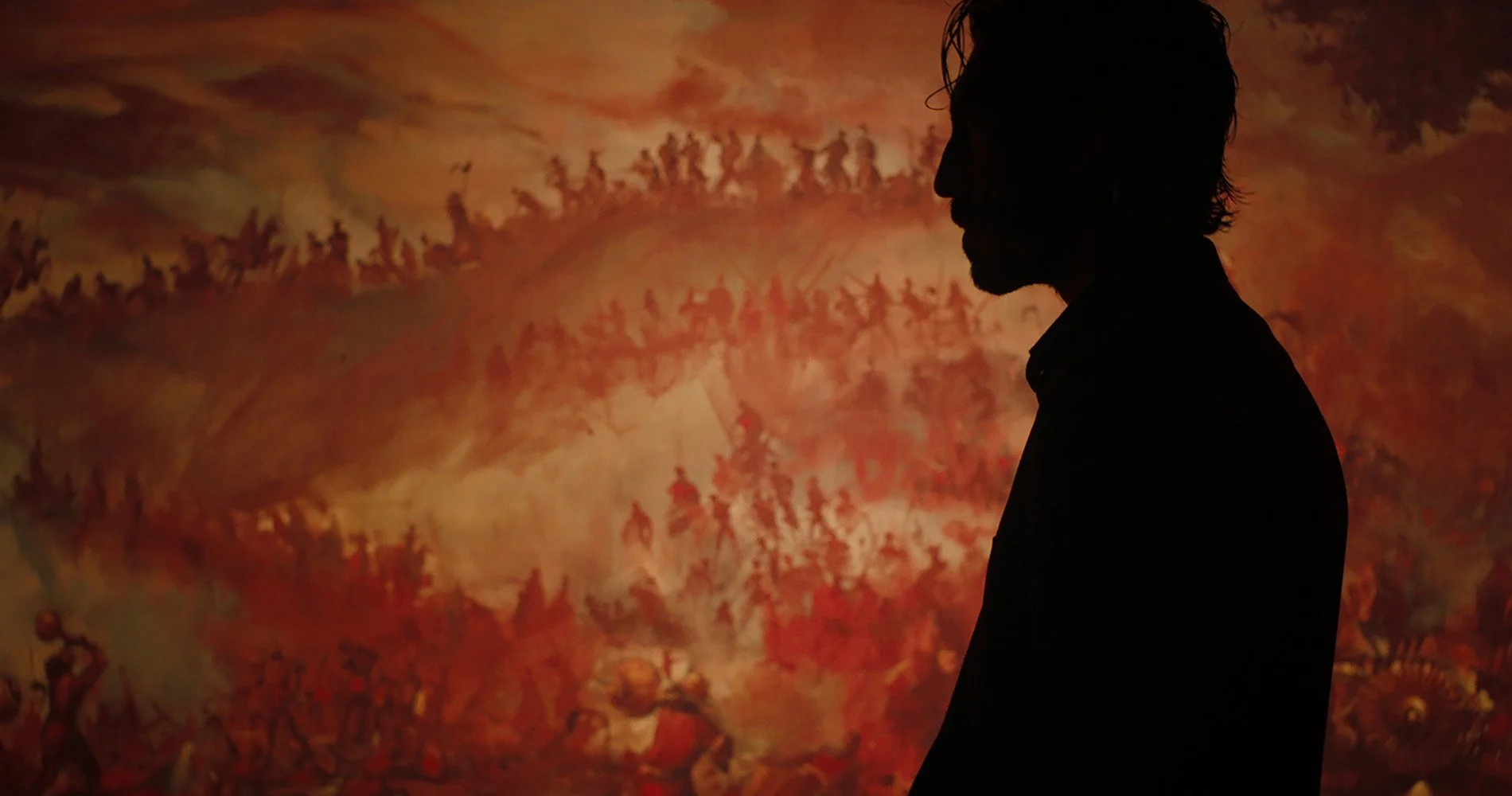Monkey Man [Review]
Dev Patel directs and stars in Monkey Man, an explosive, action-packed revenge thriller.
Dev Patel. Image credit: Universal Pictures
We’re fortunate to be able to see Monkey Man after what was a troubled production that started pre-Covid. At one point, Jordan Peele stepped in and brought Universal on board when the original studio dropped the film. Based on what I’ve read and heard, it’s a miracle this movie got made and we should all be thankful. Patel, an avid student of his film’s predecessors—Bruce Lee and Hong Kong cinema, the brutal action of films like The Raid and John Wick, modern Korean revenge thrillers like Oldboy and I Saw the Devil—made a film that’s greater than the sum of its inspirations and projects his own voice as a filmmaker.
Dev Patel’s protagonist (known only as “Kid” in the credits) is a fighter with hands scarred by what he claims was an accident with bleach. He’s paid by shady promoter Tiger (Sharlto Copely in glorious scumbag mode) to take dives in underground fights. Kid’s reason for fighting is to save enough money to enact his plans of bloody revenge against corrupt leaders responsible for his mother’s death. Taking the guise of a dishwasher, he infiltrates the exclusive club where his enemies gather and puts his plan into action. Along the way, his quest for personal revenge becomes something greater, beyond himself.
We spend nearly every frame of the film with Kid through his journey, whether in the present or in childhood memories we revisit several times in flashbacks. Patel is a coiled spring, barely able to contain his rage when in the presence of his enemies. There’s a particularly great scene where a club patron triggers Kid into an episode of PTSD; Patel clenches his fists between traumatic flashbacks, doing everything he can to stop himself from pulling the gun the audience knows is in his jacket. Monkey Man may be an action film, but there are plenty of quiet moments where Patel also excels, where he displays a soulful, sad vulnerability behind his character’s angry exterior.
Dev Patel. Image credit: Universal Pictures
Much of the film is shot in medium and close-up with a jumpy, quick-moving camera reminiscent of Paul Greengrass’ Bourne films, even outside of the bigger action moments. I found it a bit off-putting because of how close I was sitting to the screen in the theater; it was easy to lose the thread of the movement on screen. I got the sense that at times Patel’s goal was specifically to make the audience lose a scene’s blocking and instead capture the feeling of a scene. I’m going to have to revisit the movie at home.
The action in the movie often takes place in cramped, claustrophobic spaces, but fights feel BIG. Patel impressively works in long takes that show off the choreography. Fights are frenzied, visceral, desperate, and bloody. At times, we’re brought really close into it, with the camera moving jaggedly as if it’s also a fighter. A fight involving an ax as Kid runs desperately from the police and a later kitchen fight are particularly inspired. Between these fights the film also features a very unique, musically driven training montage that’s going to remembered with the greats.
Dev Patel has made a what could become a classic if it finds the right audience. The crowd’s response at my screening was very promising; hopefully word of mouth does it’s job on this one.
Monkey Man opens in theaters on April 5.



